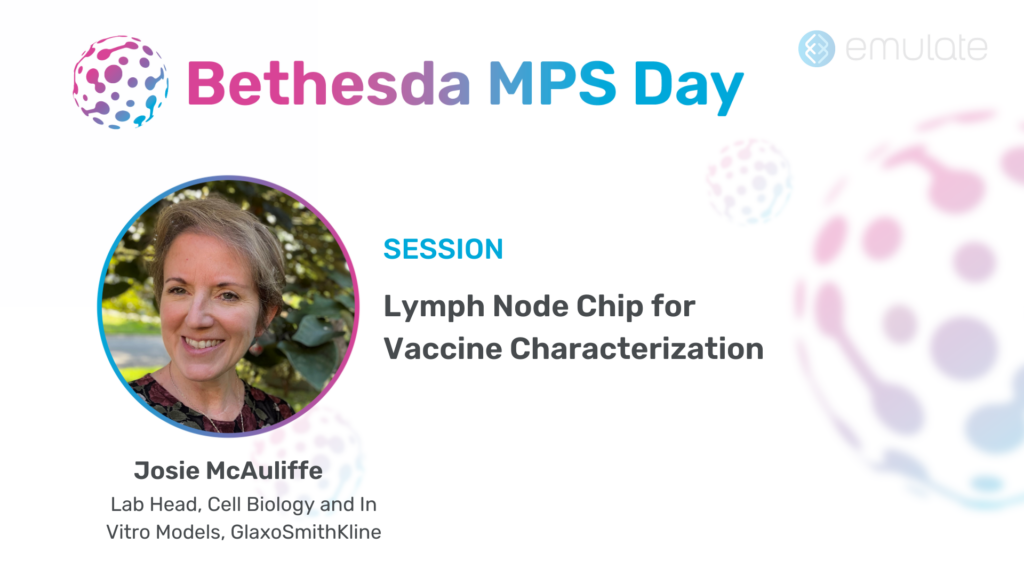Featured session from Bethesda MPS Day, which took place on November 9, 2023.
Dr. Josie McAuliffe from GlaxoSmithKline (GSK) discusses her team’s efforts to employ a Lymph Node-Chip model to better understand and improve vaccine performance. Traditional vaccine development often relies on animal models and two-dimensional cell cultures that may not accurately predict clinical outcomes. The Lymph Node-Chip, a microphysiological system that recreates aspects of lymph node architecture and immune cell interactions, offers a more human-relevant environment for evaluating vaccine antigens and optimizing immune responses.
By collaborating with the Wyss Institute, Dr. McAuliffe’s team leveraged a Lymph Node-on-a-Chip platform capable of supporting T and B cells, as well as dendritic cells, under flow conditions. They demonstrated that this model could detect key immunological readouts, including cytokines/chemokines and antigen-specific antibody responses, after administration of a novel self-amplifying mRNA (SAM) vaccine formulation. The Lymph Node-Chip also showed follicle formation, an integral part of germinal center reactions critical for generating high-affinity antibodies.
Encouraged by these results, GSK decided to internalize the Lymph Node-Chip system. The goal is to evaluate proprietary vaccines more effectively in-house, reduce logistical complexities, and potentially correlate Lymph Node-Chip data with clinical results. Early in-house experiments have revealed promising markers, such as CXCL13, IP-10, and IL-15, known to be associated with effective vaccine-induced immune responses in humans. The team is now refining the model, looking into antibody detection methods, immunophenotyping, and single-cell sequencing to gain deeper insight into vaccine mechanisms of action and improve translation to clinical success.
Key learnings from this presentation include:
Enhanced translational relevance: The Lymph Node-Chip provides a more complex, physiological context than traditional 2D cultures or animal models, potentially improving predictions of human vaccine outcomes.
Robust immunological endpoints: The chip supports T and B cell interactions, follicle formation, and cytokine/chemokine production, enabling comprehensive analysis of germinal center reactions and antibody production.
Application to novel vaccines: By integrating SAM mRNA vaccines into the Lymph Node-Chip, the team observed antigen-specific antibody responses and immune markers reminiscent of those seen in human vaccine recipients.
In-house implementation: Bringing the Lymph Node-Chip technology internally allows GSK to test proprietary formulations, streamline logistics, and refine experimental parameters without external dependencies.
Future directions: Ongoing optimization focuses on strengthening endpoint assays (e.g., sensitive antibody detection), correlating Lymph Node-Chip data with clinical efficacy, and potentially exploring other lymphoid tissues or different species (like nonhuman primates) for enhanced translational insights.

